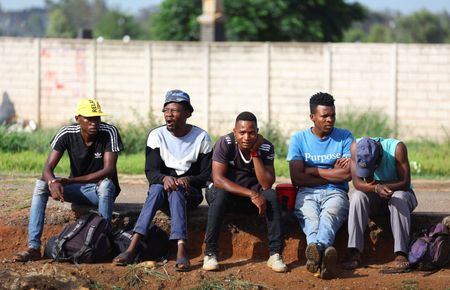By Camillus Eboh
ABUJA (Reuters) – Nigeria’s petrol subsidy scheme could cost 4 trillion naira ($9.6 bln) to finance this year from 443 billion naira earlier with higher oil prices driven by the Russia-Ukraine war, the president told lawmakers in a letter requesting extra funds.
President Muhammadu Buhari cited a spike in oil prices, worsened by Russia’s invasion of Ukraine in February, and lower crude production at home.
With rising oil prices, petrol subsidies had been estimated to cost up to $7 billion a year.
“The decision to suspend the removal of petrol subsidy at a time of high crude oil prices have elevated the subsidy cost,” Buhari said in the letter seen by Reuters.
Buhari asked lawmakers to raise the 2022 oil price benchmark to $73 per barrel from $62, cut the projected crude production by 283,000 barrels per day to 1.6 million and the cost of federally funded upstream projects.
He increased funds for the police force to “boost their morale as they grapple with heightened security challenges in the country.”
Nigeria’s government in January reversed a pledge to end its subsidies then, and instead extended them by 18 months to avert any protests in the run-up to presidential elections next year.
But the price of oil has soared. The West African country depends almost entirely on imports to meet its domestic gasoline needs, even though it is a crude oil exporter.
The budget deficit is likely to rise to 7.35 trillion or 3.99% of GDP, Buhari said, and that the increment will be funded by new borrowings from the domestic market.
The deficit was originally set at 3.42% of GDP.
Nigeria raised $1.25 billion in Eurobonds last month, at a premium to similar tenors, as it sought to find cash to fund its costly petrol subsidy scheme in the face of limited oil revenue.
($1 = 415.15 naira)
(Reporting by Camillus Eboh; Writing by Chijioke Ohuocha; editing by Grant McCool)









